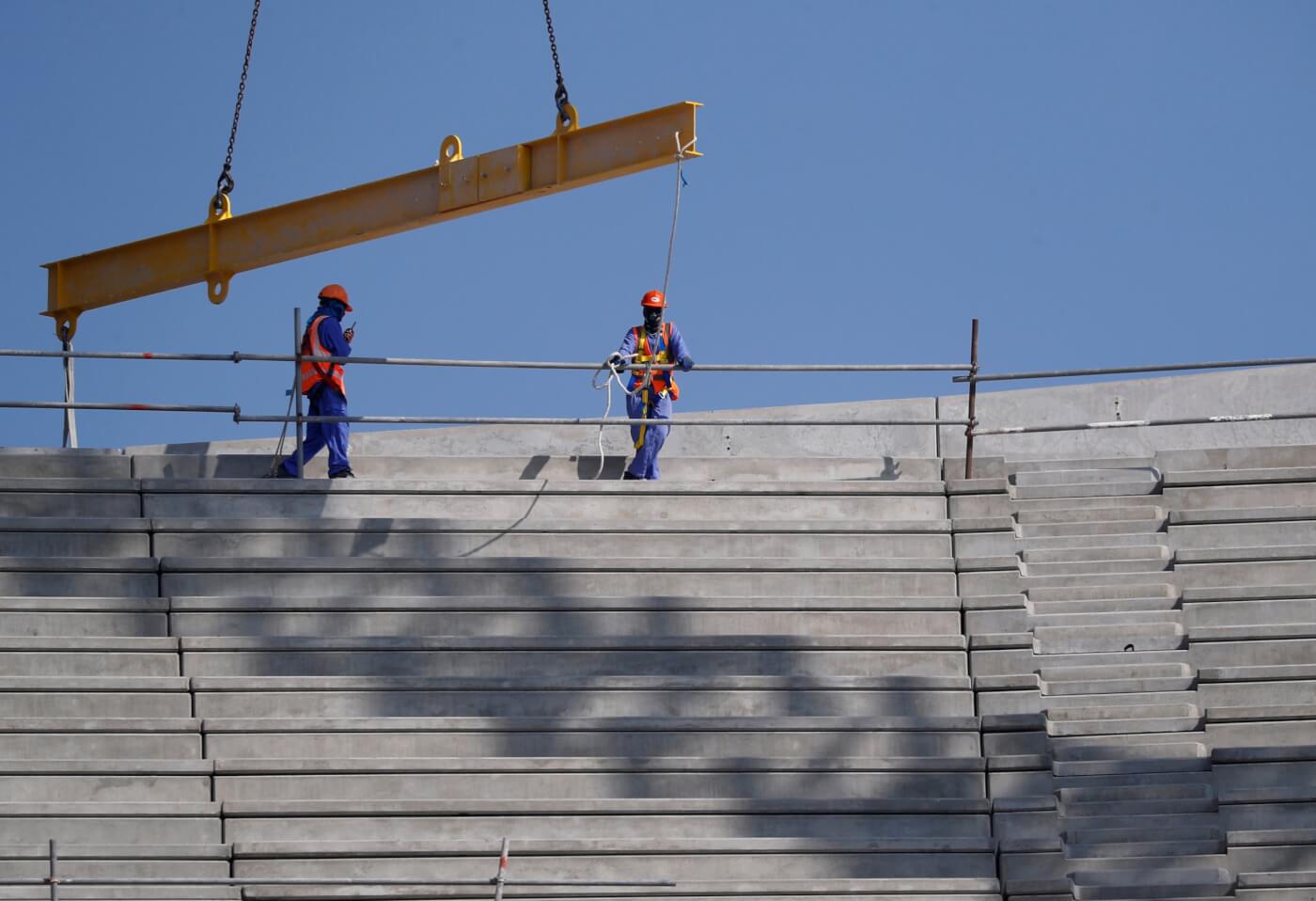The long running saga surrounding the treatment of migrant workers in Qatar has continued. A new Amnesty report has found around 100 employees working on the construction of FIFA World Cup Stadiums in the country have remained unpaid for several months.
The migrant workers are employees of Qatar Meta Coats (QMC), a company benefiting from a £685m contract to work on the façade of the 60,000 capacity Al Bayt Stadium – one of the tournaments “crown jewel” stadiums.
The report details how some workers had remained unpaid for up to seven months – despite the Qatari government admitting they had known about delayed payments as early as July 2019.
Many of the workers went unpaid from September 2019 to March 2020. The total amount owed to workers is believed to range from around 8,000 Qatari riyals (£1,720) to 60,000 (£12,900).
Upon releasing the report, Steve Cockburn, Head of Economic and Social Justice for Amnesty International said:
“This case is the latest damning illustration of how easy it still is to exploit workers in Qatar, even when they are building one of the crown jewels of the World Cup”
The human rights organisation has raised the case with the Qatari authorities, FIFA, and the Supreme Committee for Delivery and Legacy, Qatar’s World Cup organising body. As a result, some workers have begun to receive part of what they are owed, but the lion-share of the debt remains outstanding.
Amnesty have accused FIFA of not doing enough to hold Qatar accountable for these abuses and argue that, had pressure been applied from world football’s governing body, the picture for migrant workers might have been different.
Cockburn said:
“If, over the past 10 years, Fifa had held its World Cup partners to account, and used its clout to push Qatar to fully reform its systems, we wouldn’t be hearing the same tales of workers’ suffering with only two-and-a-half years until kick-off,”
The Supreme Committee for Delivery and Legacy told Amnesty that it had taken various measures to try and remedy the situation since they first learned about it in July 2019. This included meeting with QMC management and blacklisting it from future contracts.
In response to the investigation, QMC have said that the delayed payments were due to financial difficulties and they were working to resolve the issue.
The company had previously committed to settling some of the claims when fed up workers brought their claim to Qatar’s Labour tribunals in January 2020. However, the promises made during mediation sessions were left unkept.
It is damning that progress has only been made since Amnesty started raising the issue. This led to Cockburn saying:
“For years we have been urging Qatar to reform the system, but clearly change has not come fast enough. It shouldn’t take an Amnesty investigation for workers to be paid what they are owed.”
The report is just the latest in a string of controversies surrounding Qatar’s treatment of workers.
Many migrant workers have paid the ultimate price. The Qatari government claims 34 workers have died in the six years since the country won its World Cup bid. However, human rights groups and other national governments put this figure much higher.
The Nepalese government has said that more than 1,400 of its citizens alone have died working on the stadiums. A report by the International Trades Union Confederation (ITUC) found that approximately 1,200 workers had died since 2010 but predicted the total death toll would reach 4,000 by the time the World Cup has begun in 2022.
In October of last year the Qatari government committed to abolishing the much maligned ‘kafala’ labour system.
The ‘kafala’ system tied workers to so-called sponsorship by their employer. The practical implication of the system meant workers could not move jobs or leave the country without the employer’s approval.
Despite a move away from the system it is evident that the necessary safeguards for migrant workers still remain absent. Those who took their claim to the tribunal court were left just unpaid. Several workers were punished for raising the issue in court with employees recounting how they were stopped from going to work in the aftermath.
Kiran (not his real name), a QMC employee who was part of the case said:
“The company has so much advantage over workers that you regret going to the court…workers are suffering because the companies rule in Qatar”

